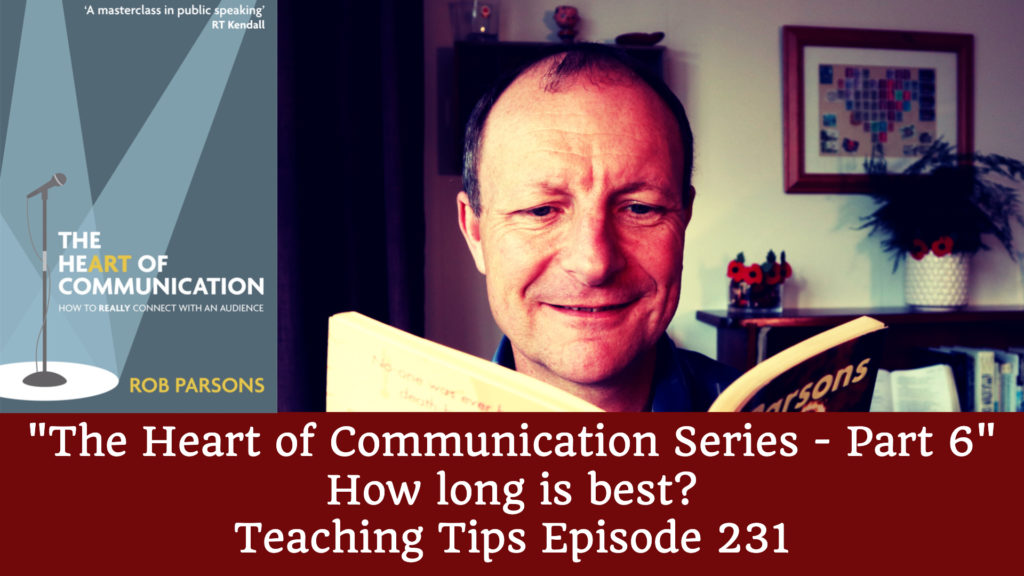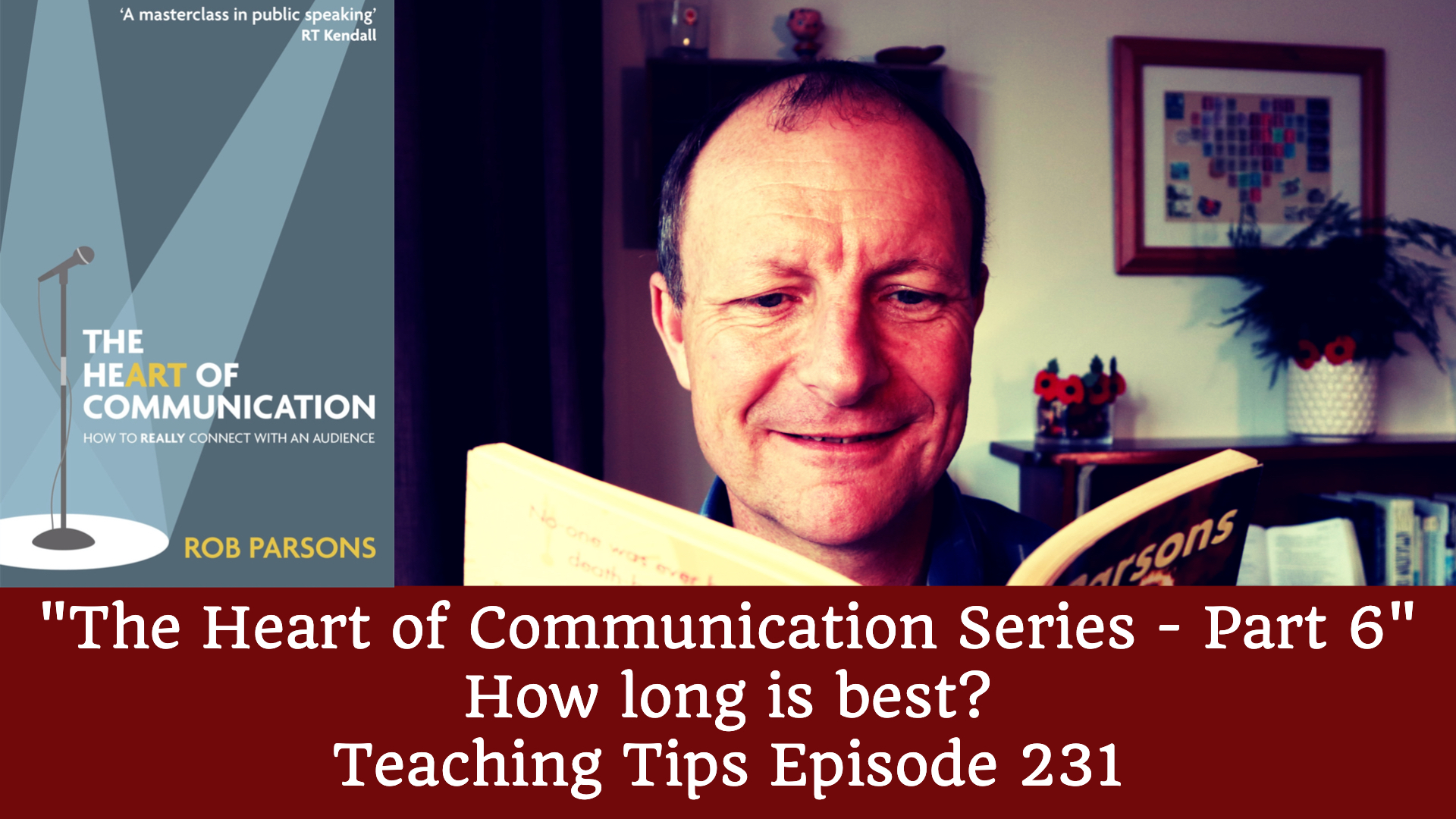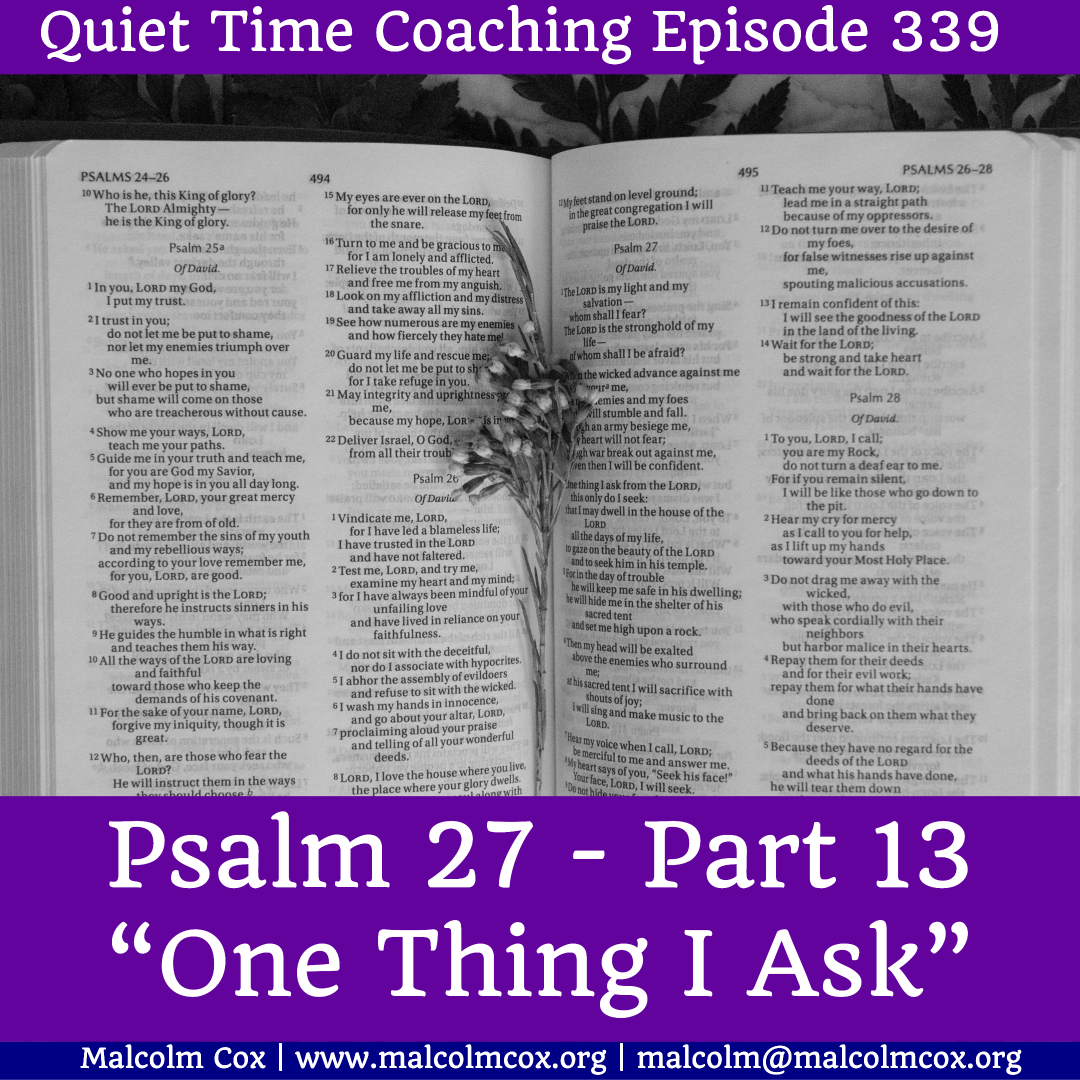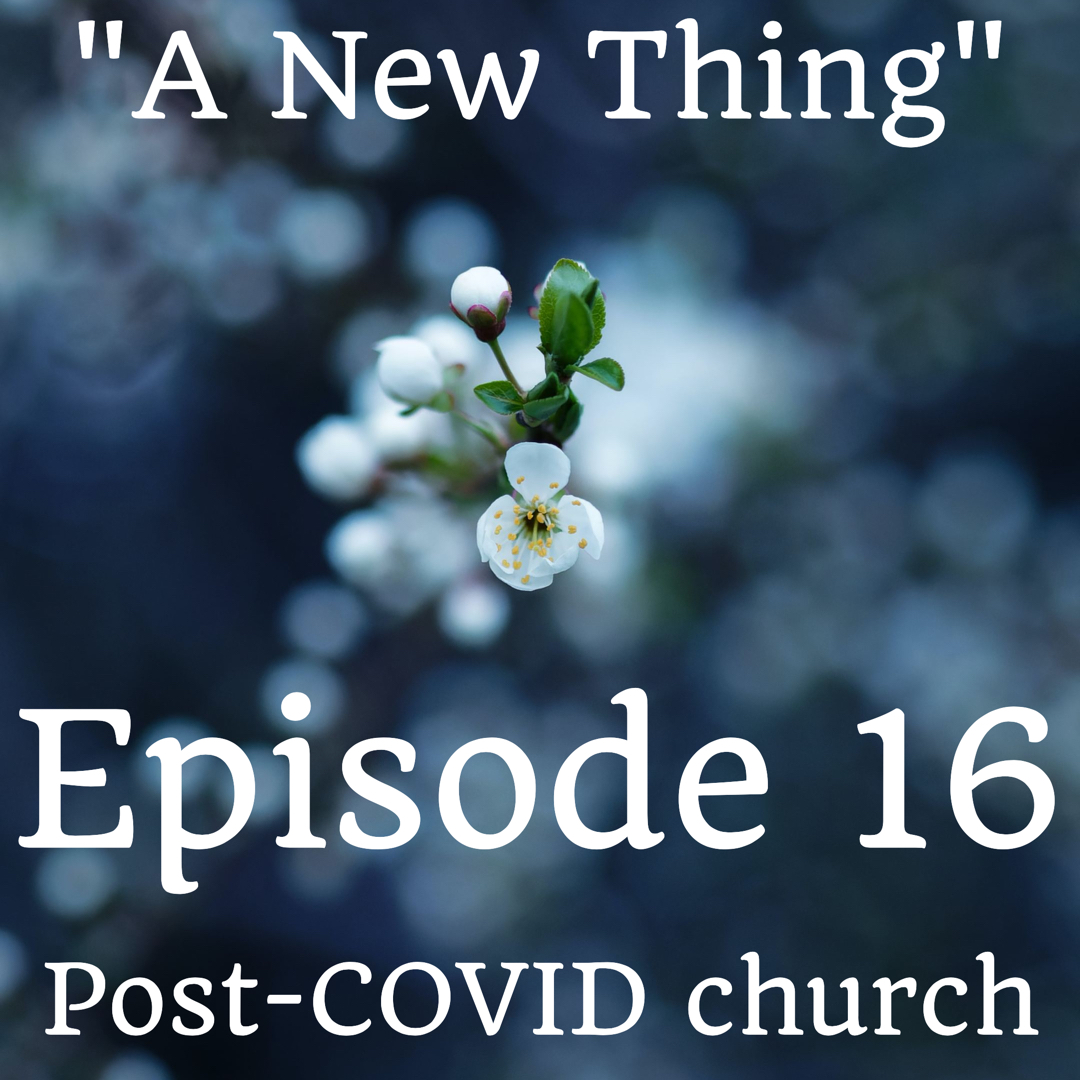Tuesday Teaching Tips Episode 231

Introduction
“My job is to talk; your job is to listen. If you finish first, please let me know.” Harry Herschfield
Parsons, Rob. The Heart of Communication: How to really connect with an audience . John Murray Press. Kindle Edition.
- How long should a talk be? My word, there is so much conviction around this topic!
- I have friends who believe anything longer than 20 minutes is a waste of time. And I have others who believe that most lessons cannot convey appropriate depth without lasting much longer.
- Let’s see what Rob Parsons has to say about this
Effectiveness
“How long should a sermon or presentation be? The right answer is: as long as it takes to communicate the material effectively.”
- Much has been written about attention spans, and how short they are these days. In the arena of public speaking it has been claimed that people cannot listen for more than 10 minutes. I gather that the research oft quoted on this statistic is suspect in its rigour.
- In any case, differences in culture, context and giftedness preclude setting down hard and fast rules.
1. Length and depth
- Length and depth or not same thing. One does not depend on the other. The parables of Jesus are remarkably short.
- Rob warns against wearing our ability to speak at length as a “badge of honour”. Our audience don’t care what we think of our abilities, they only care about what they can receive as valuable from us.
- Ask your friends what they think of your ability to speak short and long. Ask your congregation what, on average, they find to be the most useful length of lesson.
- Some people can hold our attention for a very long time, and others cannot. The key point here is to know yourself and your audience.
2. Unforeseen circumstances
- Occasionally your talk might be squeezed by circumstances outside your control.
- These situations are not an opportunity to say, “Well, I’ve prepared for 10 hours, you’re going to get it all”. Instead, they are an opportunity to give the kernel of your talk and trust the Holy Spirit.
- Paraphrasing an illustration I heard many years ago, the story is told of a preacher in a rural parish. His congregation were prevented from attending the church service by heavy snow. In fact, only the preacher and one farmer made it to the building. Despite the circumstances, the preacher felt obliged to give that one member the full benefit of his 40 minute oration. Afterwards he chatted to the farmer and asked him what he thought. The farmer said, “I have 30 head of cattle. If only one turns up at feeding time I don’t force that one cow to consume the feed for all 30.”
- Make sure that you can explain your whole sermon in one paragraph. Two benefits accrue from this. Firstly, if push comes to shove, you could give your audience the short version. Second, you enter every speaking situation with greater confidence that you know what your main point is!
3. Know your material
- An habitual tendency of mine is to be overly repetitive. There certainly is a place for repetition of themes to help drive them home, but, I am as capable of waffling as the next man.
- What is the cure? Perhaps what that famous preacher Spurgeon said to his students:
“There is such a thing as having too much to say, and saying it until hearers are sent home loathing rather than longing . . . If you ask me how you may shorten your sermons, I should say study them better. Spend more time in the study that you may need less in the pulpit.”
- Do you know your material? Really know it?
Conclusion
- Jesus spoke short and long, as did Paul,
“On the first day of the week, when we were gathered together to break bread, Paul began talking to them, intending to leave the next day, and he prolonged his message until midnight” (Acts 20:7 NAS95)
- My advice would be this: if you habitually speak short, try speaking longer. If you tend to be long, try speaking shorter.
- Let’s develop the full gamut of competencies to make sure that we are better equipped for whatever circumstances we may find ourselves in.
- Again, as always, the issue is what our congregations need, not what we feel works for us.
Questions: “What is your tendency? Short or long? And why? What are the barriers to speaking shorter or longer?”
Please add your comments on this week’s topic. We learn best when we learn in community.
Do you have a question about teaching the Bible? Is it theological, technical, practical? Send me your questions or suggestions. Here’s the email: malcolm@malcolmcox.org.
If you’d like a copy of my free eBook on spiritual disciplines, “How God grows His people”, sign up at my website: http://www.malcolmcox.org.
Please pass the link on, subscribe, leave a review.
“Worship the LORD with gladness; come before him with joyful songs.” (Psalms 100:2 NIV11)
God bless, Malcolm



